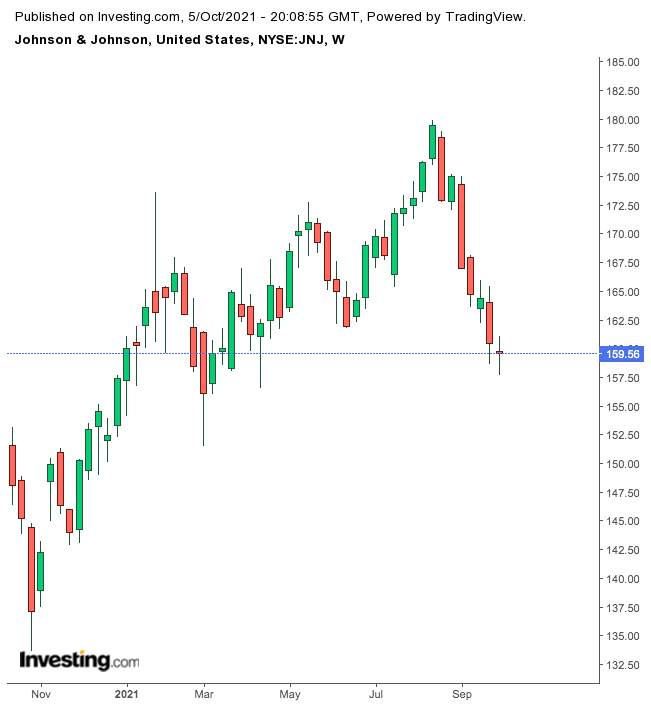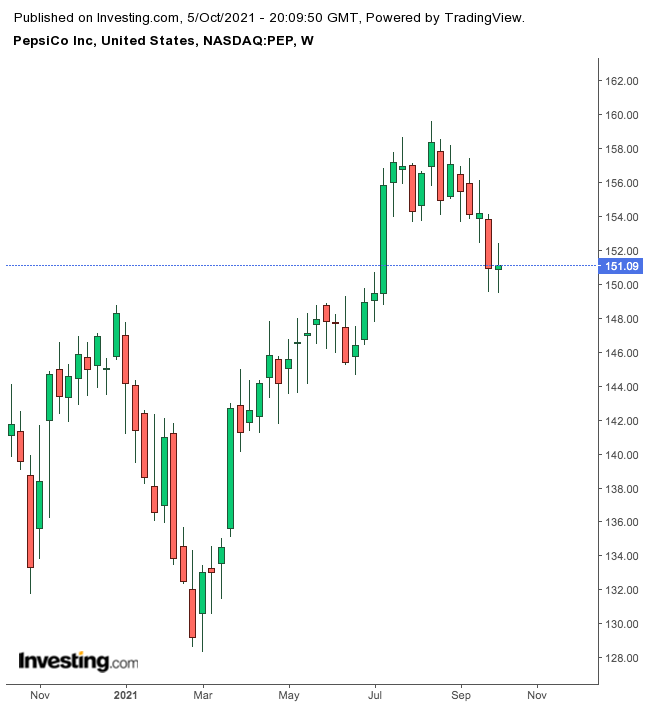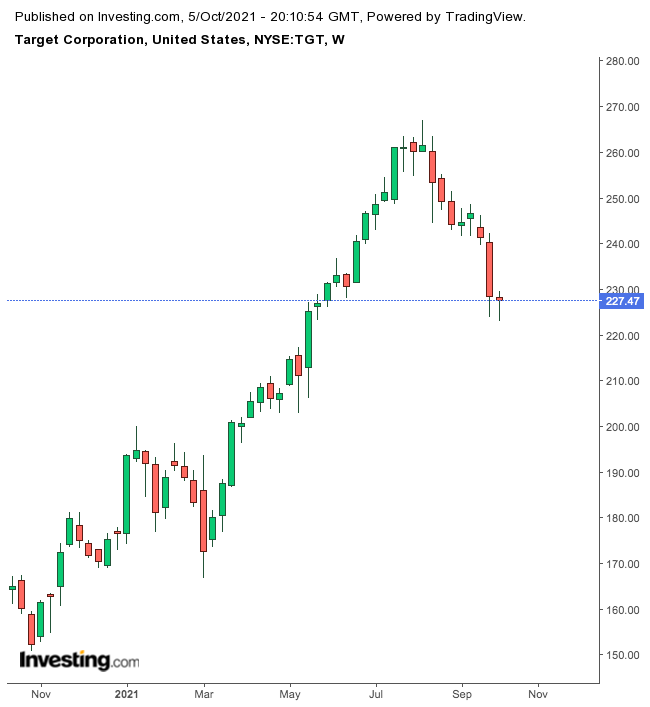Intel surge more than 8% after chipmaker’s profits top expectations
If you’re planning to start saving for your retirement, it’s important to keep some quality dividend-paying stocks in your portfolio. Companies that offer reliable and predictable proceeds as well as long-term growth potential can help provide income when you need it most in your golden years.
A challenge beginners face, however, is how to find these companies. One way to make it easier is to focus on the Dividend Aristocrats Index, which includes companies that have hiked their dividends for at least 25 consecutive years.
A dividend track-record spanning more than a quarter of a century is a solid indicator that these companies can produce steady, reliable income for investors, not just during the good times, but also during downturns and recessions.
Since 1926, dividends have contributed approximately 32% of total returns for the S&P 500, while capital appreciation has contributed 68%, according to research provided by S&P Dow Jones Indices.
Below, we've put together a list of three dividend stocks from this group to provide a sense of their strength.
1. Johnson & Johnson
Health care stocks can also provide a regular and growing income stream to retirees. Health care providers offer services that remain necessary even during a recession. Plus, economic swings don’t typically curb the roll-out of new drugs and medical devices.
In this space we like the global pharma company, Johnson & Johnson (NYSE:JNJ). The New Jersey-based JNJ is exactly the kind of dividend stock that retirees—or those planning to retire—should buy.
When it comes to rewarding investors, few companies have done better than Johnson & Johnson. The company has increased its quarterly dividend every year for 58 consecutive years.
This remarkable performance puts Johnson & Johnson among an elite group known as Dividend Kings, companies with at least five decades of annual dividend hikes. JNJ pays $1.06 a share quarterly with an annual yield of 2.64%.

The company’s latest guidance shows that its sales are recovering quickly after the COVID-19 induced slowdown in their business segments, such as its medical device division. The unit was hit hard amid the pandemic as elective procedures were cancelled. Sales from that unit climbed 63% to $7 billion in Q2—higher than pre-pandemic sales of $6.5 billion in the second quarter of 2019.
“All three segments are hitting on all cylinders,” Chief Financial Officer Joseph Wolk told Bloomberg TV in July. “I take that as a very strong sign of the health of the company. We’re better positioned today than entering the pandemic.”
2. PepsiCo
Food companies may not provide a hefty capital gain, but the shares of some companies within this group offer a steady income stream for retirees. The snack and beverage giant, PepsiCo (NASDAQ:PEP) is one of our favorites from this group.
In recent quarters, Pepsi has reported stronger-than-expected sales, helped by homebound consumers stocking up on snack foods during the pandemic. Pepsi is well-positioned to benefit from these evolving eating habits as it has a diversified portfolio of snack items, like Tostitos, Fritos, Ruffles, and Cheetos.
Yesterday, Pepsi raised its sales forecast for this fiscal year on rising demand for its beverages and snack foods. Full-year revenue should increase 8% on an organic basis, the company said, having previously forecast 6% growth. The company also said core earnings per share will at least reach its $6.20 target.

Along with a diversified product portfolio, Pepsi is also a reliable dividend provider. It has hiked its payout for 49 years in a row, showing that the company’s dividend is very safe, making it a comfortable choice if you’re a risk-averse income investor.
The stock currently pays $1.075 a share quarterly dividend, which translates into a solid 2.9% annual yield. Given this impressive track record, the company should have little trouble continuing to raise its dividend for many years.
3. Target
When picking dividend-paying stocks for a retirement portfolio, the biggest concern to address is whether the company is capable of producing strong cash flows in both good and bad times. Minneapolis-based retailer Target (NYSE:TGT) certainly fits that bill.
The company has steadily increased its dividend every year for the last 50 years, a period that covers crises such as the dot-com collapse of the early 2000s, the financial crash of 2008-2009, and the COVID-19 pandemic of the past year. While delivering cash to investors each quarter, the discount retailer has also maintained a very conservative payout ratio of about 22%, a level below the industry average.
Target pays $0.9 a share quarterly with an annual dividend yield of 1.58%, after the retailer announced a whopping 32% hike in its payout in June this year.
That strength comes from Chief Executive Officer Brian Cornell’s efforts to make Target's retail outlets more attractive. He spearheaded the remodeling of hundreds of stores, introduced many affordable fashion brands, and bolstered the retailer’s e-commerce offerings. Starting with the pandemic, Target has been using its stores more as mini distribution centers for its booming digital business, to better fulfill online orders.
